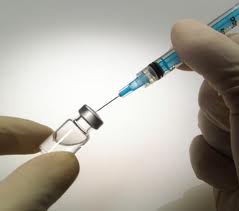As there are certain pathogens, such as HIV, whose risk to safety prevents the development of live or attenuated vaccines, the need for the development of subunit vaccines becomes more critical. The subunit vaccines for human papillomavirus (HPV) provide near complete protection against HPV 16 and 18 when administered to individuals naive to these types. Thus making these vaccines an excellent model for studying the immunity elicited by a highly effective subunit vaccine. Like most vaccines HPV vaccine protects by generating antibodies, therefore this study aimed to characterise and better understand the memory B cells elicited by the HPV vaccine. To do this they isolated HPV-specific memory B cells from adolescent females and women who received the quadrivalent HPV vaccine using fluorescently conjugated HPV 16 pseudoviruses to label antigen receptors on the surface of memory B cells. Antibodies cloned and expressed from these HPV 16-pseudovirus labeled memory B cells were found to be predominantly IgG and potently neutralized HPV 16 pseudoviruses in vitro despite possessing only average levels of somatic mutation. These findings suggest that extensive somatic hypermutation is not required to achieve potent vaccine-specific neutralizing antibody responses.












